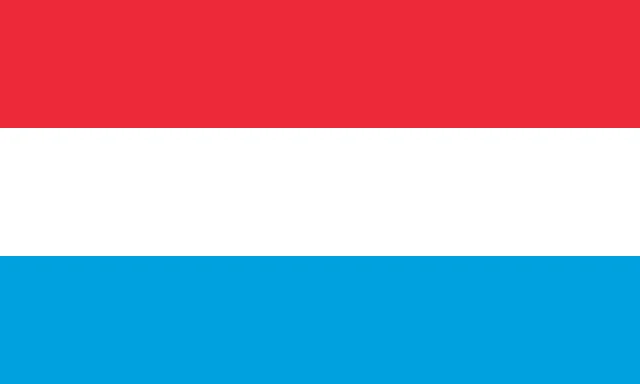Pharmaceutical /Medicine/Drug/OTC Registration in Luxembourg

MOH- Ministry of health and social Security
MOH Website- https://msss.gouvernement.lu/
Regulatory Authority- Luxembourg Agency for Medicines and Health Products (ALMPS)
Regulatory Website – https://www.iml.lu/
Local Authorization Representative Required- Yes
Drug Approval Process
Marketing authorization must be obtained by the manufacturer prior to releasing a new medication on the market. If national marketing permission is required, the manufacturer must first request approval from the Ministry of Health. Article 2 of the Grand-Ducal law of December 15, 1992, regarding the marketing of pharmaceutical products, as modified, states that the application must be sent in its whole in an electronic format that complies with the European file format specifications to the Ministry of Health. The application should contain information about the applicant and the medicinal product, such as (but not limited to) the name or company name, the registered office or place of residence of the person in charge of marketing the product, and the name of the Medicinal Products.
When submitting an application to the European Medicines Agency (“EMA”) for an EU marketing license, there are a few EU-mandated procedures that must be properly followed.
Mutual Recognition Procedure
The MRP requires that the assessment and marketing authorization of one Member State (“Reference Member State (RMS)”) be “mutually recognized” by other “Concerned Member States (CMS).” The “repeat use” approach involves extending current marketing authorizations to other countries.
The pharmaceutical business sends their application to the designated country for review, which may approve or reject it. The other countries must decide within 90 days (about 3 months) whether to approve or reject the decision made by the original country (RMS).
If a member state cannot approve the assessment report, summary of product characteristics, labeling, or package leaflet due to potential health or environmental risks, the relevant Co-ordination Group should issue a pre-referral procedure.
If the Member State(s) cannot reach an agreement within the 60-day pre-referral period, they can submit the case to the CHMP/CVMP for arbitration through the EMEA secretariat.
This applies in circumstances where no authorization exists in any EU Member State.
Identical dossiers are filed throughout all Member States seeking marketing authorization. The applicant will select a Reference Member State to draft assessment documents, which will then be sent to the Concerned Member States. They will either approve the evaluation or move the application to arbitration.
The new Decentralized Procedure incorporates Concerned Member States earlier in the evaluation process than the MRP, reducing conflicts and facilitating marketing authorization applications in multiple markets.
The applicant can request approval of a draft assessment report, summary of product characteristics, labeling, and packaging leaflet proposed by a reference Member State within 210 days.
The AIC issued under national procedure is only valid in Italy. AIFA verifies the compliance of the documentation submitted by the company and ensures that the medicine is produced in accordance with good manufacturing practices, that its components (active ingredient and other constituents) are appropriate, and that the manufacturer’s control methods are satisfactory. AIFA, with the support of the Scientific Technical Commission (CTS) and the Higher Institute of Health (ISS), evaluates the data presented by pharmaceutical companies on chemical pharmaceutical, biological, drug-toxicology, and clinical on each drug intended for the Italian market to ensure its safety and efficacy requirements.
Generic Approval Process
Article 10(1) of Directive 2001/83/EC exempts applicants from providing pre-clinical test and clinical trial results if they can demonstrate that the medicinal product is a generic version of a reference product that has been authorized for at least 8 years in a Member State or the Community. A generic medicinal product is one that has the same active substance composition, pharmaceutical form, and bioequivalence as the reference product, as demonstrated by appropriate studies.
Process
Market Authorization Application (MAA): Depending on the chosen route (centralized, decentralized, or national), the process starts with the submission of a Market Authorization Application to the European Medicines Agency (EMA) or to a national regulatory body within the European Union.
Review and Assessment: The appropriate regulatory body reviews and assesses the application submitted. Instead of carrying out protracted clinical trials, the focus is on proving bioequivalence to the reference (originator) product for generic medications.
Bioequivalence Studies: To prove that their product is both pharmaceutically and bioequivalent to the reference product, generic medication producers must carry out bioequivalence studies. In these investigations, the pharmacokinetic parameters (such as absorption, distribution, metabolism, and excretion) of the reference product and the generic medication are usually compared.
Quality and Safety Evaluations: Using the information and documentation that has been supplied, regulatory bodies evaluate the generic drug’s efficacy, safety, and quality. This includes adhering to Good Manufacturing Practice (GMP) guidelines, evaluating the manufacturing process, and implementing quality control methods.
Approval: The generic medication is granted marketing license, enabling it to be advertised and sold in Luxembourg and other EU member states, provided it satisfies all legal requirements and standards.
Post-Marketing Surveillance: Following clearance, regulatory bodies employ post-marketing surveillance measures to keep an eye on the security and effectiveness of generic medications. This entails gathering and reviewing adverse event reports and periodically reviewing safety data.
Registration Timeline
License Validity –5 years
Join hundreds of companies who trust OMC Medical for their regulatory needs.